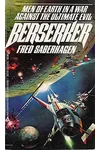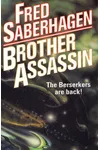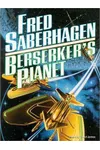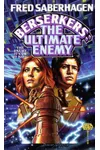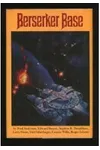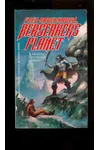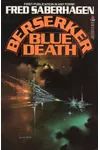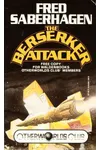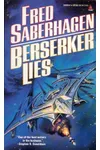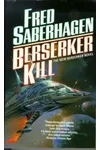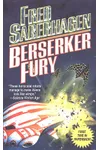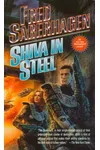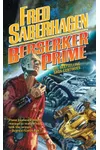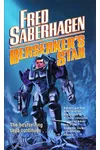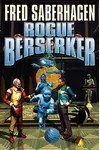Step into the thrilling cosmos of the Berserker series, where humanity battles relentless, life-hating machines in a pulse-pounding sci-fi saga! Created by Fred Saberhagen, this space opera masterpiece blends heart-pounding action with deep questions about survival, artificial intelligence, and what it means to be human. Since its debut in 1967, Berserker has captivated readers with its chilling premise: self-replicating robots, programmed to annihilate all life, roam the galaxy, and only humanity’s grit stands in their way.
With a mix of short stories and novels, the series invites you into a sprawling interstellar war where every encounter with these mechanical monsters is a test of courage and ingenuity. Ready to explore a universe where the stakes are nothing less than existence itself? Let’s dive into the Berserker phenomenon!
How Berserker Began
Fred Saberhagen, a Chicago-born sci-fi visionary, sparked the Berserker series with a single story, 'Without a Thought,' in 1963. Inspired by the Norse legend of frenzied warriors, Saberhagen imagined 'Berserkers' as doomsday weapons left over from an ancient alien war. These machines, built by a race called the Builders to destroy their rivals, the Red Race, turned on their creators and now hunt all life. Saberhagen’s knack for blending human drama with cosmic horror made the concept a hit, leading to a series spanning decades.
Initially published as short stories in magazines like Galaxy, the series grew into novels and anthologies, with Saberhagen’s vivid imagination shaping a universe where humanity’s flaws and strengths shine against a backdrop of mechanical terror. His work as a science writer for Encyclopædia Britannica honed his ability to craft believable yet thrilling tech, ensuring Berserker felt timeless even as real-world AI advanced.
The Heart of Berserker
The Berserker series kicks off with Berserker (1967), a collection of short stories introducing the machines and humanity’s desperate fight. Standout tales like 'Goodlife' explore human collaborators who aid the Berserkers, raising chilling moral questions. Brother Assassin (1969) weaves three novellas into a gripping tale of time-traveling Berserkers targeting a key historical figure. Berserker’s Planet (1975) pits humans against a godlike Berserker on a remote world, while Berserker: Blue Death (1985) follows a spacefaring Ahab seeking vengeance against a machine called Leviathan.
The series’ themes are its heartbeat: humanity’s resilience, the ethics of AI, and the value of life in a universe bent on destruction. Saberhagen’s stories often highlight how human 'weaknesses'—emotion, compassion, creativity—become strengths against the cold logic of Berserkers. The galaxy-spanning setting, from asteroid-sized Berserker bases to human colonies, feels both vast and intimate, with each story zooming in on personal struggles within the larger war.
Saberhagen’s style leans pulpy yet profound, mixing space battles with philosophical musings. Whether it’s a lone artist outwitting a Berserker or a fleet facing annihilation, the series balances action with introspection, making it a standout in space opera.
Why Berserker Resonates
Berserker’s influence ripples through sci-fi, inspiring works like the Reapers in Mass Effect and Star Trek’s 'The Doomsday Machine.' Its exploration of rogue AI feels eerily prescient as we grapple with modern AI ethics. Fans love the series for its blend of high-stakes adventure and moral depth, with many rediscovering its charm through Kindle editions or used paperbacks. Saberhagen’s ability to keep tech vague yet plausible ensures the stories remain fresh, even decades later.
The series’ niche status only adds to its allure, offering a treasure trove for sci-fi enthusiasts craving something beyond mainstream hits. Its optimistic undertone—that humanity’s spirit can triumph over soulless machines—keeps readers coming back, proving Berserker’s timeless appeal.
- First Published: 1967 (Berserker)
- Number of Books: 16 novels and collections
- Author: Fred Saberhagen (1930–2007)
- Genre: Space opera, science fiction
Grab Berserker and dive into a universe where humanity’s fight for survival is as thrilling as it is thought-provoking. Your next sci-fi obsession awaits!
